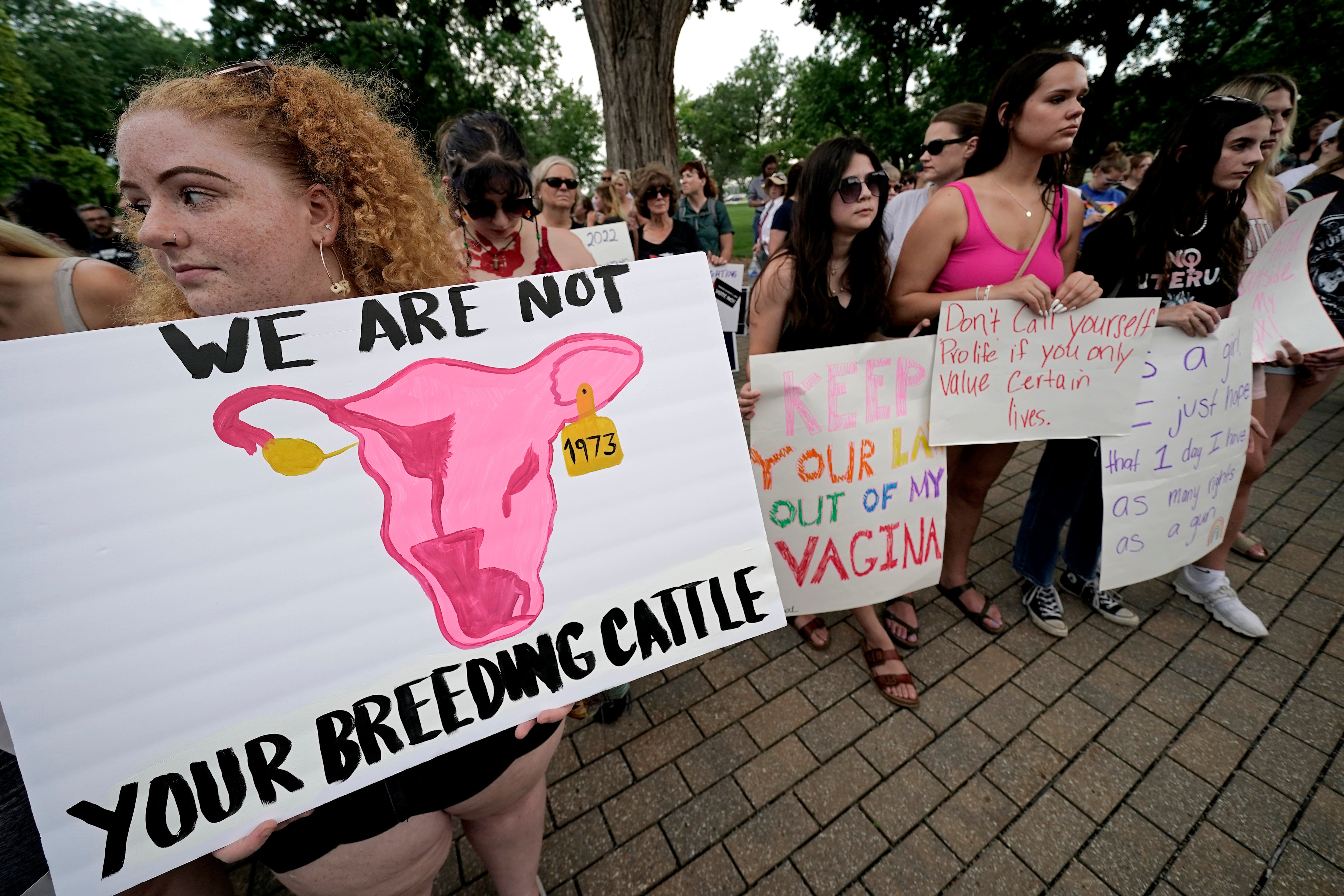Kansas won't force providers to ask patients why they want abortions while a lawsuit proceeds
Kansas isn’t enforcing a new law requiring abortion providers to ask their patients why they want to terminate their pregnancies

Your support helps us to tell the story
From reproductive rights to climate change to Big Tech, The Independent is on the ground when the story is developing. Whether it's investigating the financials of Elon Musk's pro-Trump PAC or producing our latest documentary, 'The A Word', which shines a light on the American women fighting for reproductive rights, we know how important it is to parse out the facts from the messaging.
At such a critical moment in US history, we need reporters on the ground. Your donation allows us to keep sending journalists to speak to both sides of the story.
The Independent is trusted by Americans across the entire political spectrum. And unlike many other quality news outlets, we choose not to lock Americans out of our reporting and analysis with paywalls. We believe quality journalism should be available to everyone, paid for by those who can afford it.
Your support makes all the difference.Kansas isn't enforcing a new law requiring abortion providers to ask patients why they want to terminate their pregnancies, as a legal challenge against that rule and other older requirements makes its way through the courts.
Attorneys for the state and for providers challenging the new law along with other requirements announced a deal Thursday. In return for not enforcing the law, the state will get another four months to develop its defense of the challenged restrictions ahead of a trial now delayed until late June 2025. The agreement was announced during a Zoom hearing in Johnson County District Court in the Kansas City area.
Kansas doesn’t ban most abortions until the 22nd week of pregnancy. Its clinics now see thousands of patients from other states with near bans on abortion, most notably Missouri, Oklahoma and Texas.
Last fall, District Judge K. Christopher Jayaram blocked enforcement of requirements that include rules spelling out what providers must tell their patients, and a longstanding requirement that patients wait 24 hours after consulting a provider to undergo a procedure. On July 1, he allowed the providers to add a challenge to the new reporting law to their existing lawsuit rather than making them file a separate case.
The new law was supposed to take effect July 1 and would require providers to ask patients questions from a state script about their reasons for an abortion, although patients wouldn't be forced to answer. Potential reasons include not being able to afford a child, not wanting a disabled child, not wanting to put schooling or a career on hold, and having an abusive spouse or partner. Clinics would be required to send data about patients' answers to the state health department for a public report every six months.
“We are relieved that this intrusive law will not take effect," the Center for Reproductive Rights, the national organization for abortion provider Planned Parenthood and the regional Planned Parenthood affiliate said in a joint statement. “This law would have forced abortion providers to collect deeply personal information — an unjustifiable invasion of patient privacy that has nothing to do with people’s health.”
Kansas already collects data about each abortion, such as the method and the week of pregnancy, but abortion opponents argue that having more information will aid in setting policies for helping pregnant women and new mothers. The Republican-controlled Legislature enacted the law over a veto from Democratic Gov. Laura Kelly.
At least eight other states have such reporting requirements, but the Kansas Supreme Court declared in 2019 that the state constitution protects access to abortion as a part of a “fundamental" right to bodily autonomy. In August 2022, Kansas voters decisively rejected a proposed amendment to say that the constitution doesn't grant any right to abortion access.
The trial of the providers' lawsuit had been set for late February 2025 before Jayaram delayed it in responded to the parties' deal.
“The state is prepared to accept an agreement not to enforce the new law until the final judgment, provided that we get a schedule that accommodates the record that we think we need to develop in this case,” said Lincoln Wilson, a senior counsel for the anti-abortion Alliance Defending Freedom, which is leading the state's defense of its laws.
Abortion providers suggested July 1 that the state wouldn't enforce the new reporting requirement while the lawsuit proceeded, but the health department did not confirm that when reporters asked about it.